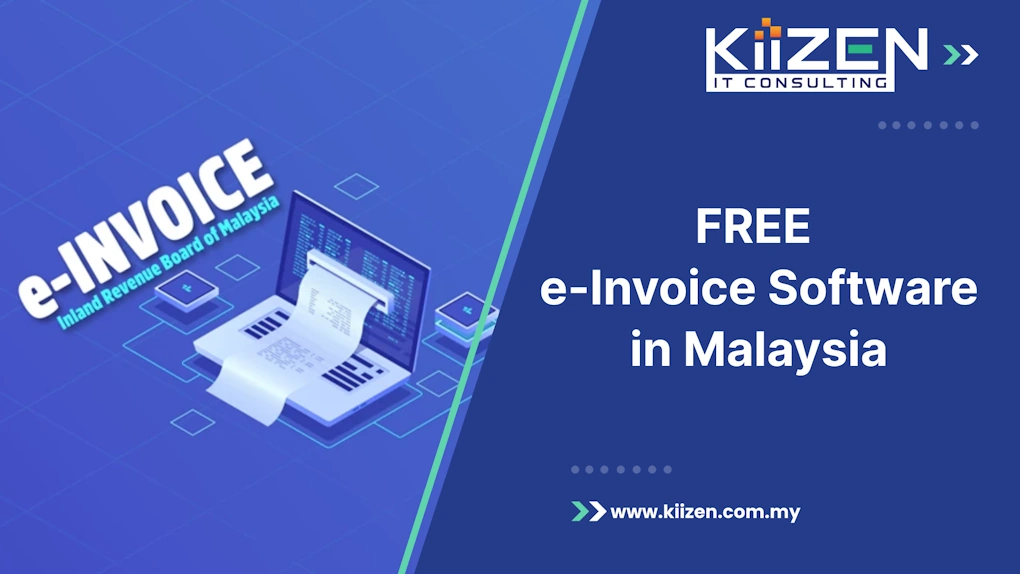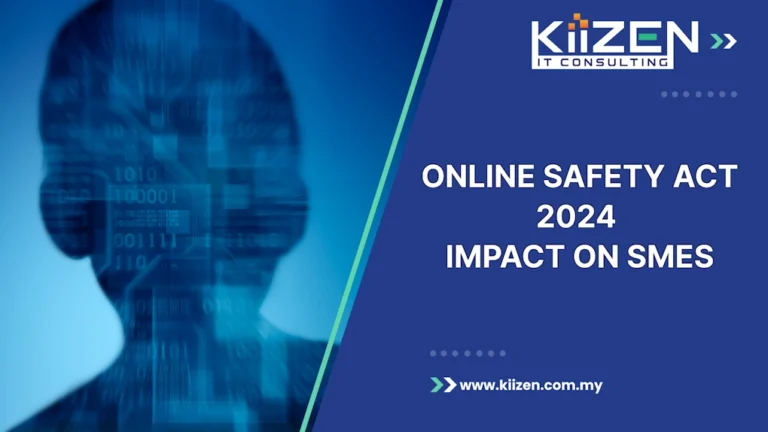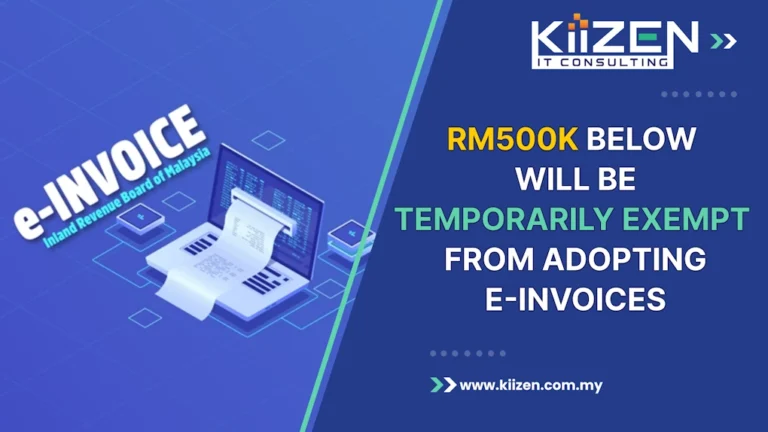Starting August 1, 2024, e-invoicing became mandatory for businesses with annual turnovers exceeding RM 100 million, with phased implementation continuing through January 2026 for all commercial taxpayers, except those with turnovers below RM 150,000.
For small and medium enterprises (SMEs), micro-businesses, and startups, free e-invoicing software offers a cost-effective way to comply with these regulations while streamlining operations.
This article explores three leading free e-invoicing software solutions in Malaysia—MyInvois Portal, Bukku, and AutoCount Cloud Accounting—detailing their features, free tier limitations, pricing for the lowest paid plans, and suitability for various business needs.
Understanding E-Invoicing in Malaysia
E-invoicing involves the digital creation, submission, and management of invoices, replacing traditional paper-based methods. It ensures near real-time validation and storage of transactions, covering Business-to-Business (B2B), Business-to-Consumer (B2C), and Business-to-Government (B2G) interactions.
Phased Implementation Timeline
The LHDN has outlined a phased approach to e-invoicing adoption based on annual turnover:
| Phase | Start Date | Turnover Threshold | Details |
|---|---|---|---|
| Phase 1 | August 1, 2024 | > RM 100 million | Approximately 5,000 taxpayers, with a 6-month soft landing phase ending February 1, 2025. |
| Phase 2 | January 1, 2025 | > RM 25 million | Includes a 6-month soft launch period. |
| Phase 3 | July 1, 2025 | RM 500,000 – RM 25 million | Covers smaller businesses with a 6-month transition. |
| Phase 4 | January 1, 2026 | All businesses (except exempted) | Includes small traders above RM 150,000 turnover. |
Exemptions apply to small traders with annual sales below RM 150,000, benefiting over 700,000 hawkers and micro-businesses.
Free e-Invoicing Software Solutions in Malaysia
To support businesses in meeting e-invoicing requirements without financial burden, we have identified three primary free e-invoicing software options are available in Malaysia: MyInvois Portal, Bukku, and AutoCount Cloud Accounting. Each is fully compliant with LHDN’s e-Invoice.
Below is a detailed analysis of their features, free tier limitations, and pricing for the lowest paid plans.
MyInvois Portal
Overview: The MyInvois Portal is the official e-invoicing platform provided by the LHDN for free, designed to facilitate compliance for all taxpayers. It supports businesses in creating, submitting, and managing e-invoices, ensuring seamless integration with LHDN’s database.
Key Features:
- Profile Management: Manage user, taxpayer, representative, and ERP system profiles.
- Document Management: Create, submit, view, reject, cancel, and print e-invoices, credit notes, debit notes, and refund notes.
- Accessibility: Available on computers, laptops, and smartphones, enabling flexible management from anywhere. (Mobile App Available too)
- Compliance: Fully aligned with LHDN’s e-invoicing guidelines.
- No Cost: Provided at no charge, accessible to businesses of all sizes.
Free Tier Limitations:
- Manual Processes: The portal relies on manual input, which may be time-consuming for businesses with high invoice volumes.
- Limited Automation: Lacks advanced features like auto email e-Invoice PDF copy, or recurring billing, etc.
Paid Plans: Not applicable, as the MyInvois Portal is entirely free, provided by the government to support taxpayers.
Who It’s For: Ideal for SMEs, micro-businesses, or any taxpayer without an existing system. It’s particularly useful for businesses with straightforward invoicing needs or those transitioning to e-invoicing for the first time.
How to Access: Taxpayers can log in via the MyTax Portal. A testing environment is available to practice issuing e-invoices before live submission.
Best For: Small businesses and micro-enterprises seeking a no-cost, reliable solution for basic e-invoicing needs.
There’s most likely another new MyInvois e-POS system will be available to make it easier for micro-business. It is currently only for registered pilot businesses for testing.
Bukku
Overview: Bukku is a third-party software provider offering a permanently free e-invoicing plan, making it 1 of the prominent non-government solution in Malaysia with this offering. Trusted by over 45,000 companies, it is fully compliant with LHDN MyInvois and the Peppol Network, an international e-invoicing framework, and provides a user-friendly platform for SMEs.
Key Features:
- Invoice Creation: Generate and send invoices in one minute, accessible on any device with an internet connection.
- MyInvois Integration: Supports MyInvois-ready company profiles, contacts, and products.
- Submission Options: Offers standard (separate or bulk), consolidated, and self-billed e-invoice submissions, with cancellation within 72 hours.
- Peppol Compliance: Integrated with the Peppol Network (accredited by MDEC), enabling seamless international transactions.
- Additional Tools: Includes quotations, sales orders, delivery orders, credit notes, payments, and refunds, with features like collection from invoice, and one-click sharing via email or WhatsApp.
- Support: Free webinars in Malay, English, and Chinese to guide users on e-invoicing compliance. Their website also extensive knowledge base detail user guide.
Free Tier Limitations: (Launch Plan)
- Feature Restrictions: The free plan covers basic e-invoicing features on the sales portion which exclude self-billing. Along with other advanced functionalities, such as enhanced automation or additional integrations, may require a paid subscription.
- Scalability: May not fully support businesses with very high transaction volumes without upgrading to a paid plan.
Paid Plans: Bukku offers affordable subscription plans for SMEs, exact pricing is always updated and listed at their Bukku pricing page with promotions sometime.
Who It’s For: Perfect for startups, SMEs, and businesses seeking a feature-rich, user-friendly e-invoicing solution. It suits those needing more than basic invoicing, such as automated workflows or integration with other business processes.
How to Access: Sign up for free at Bukku’s signup page. Free demos and webinars are available to assist with onboarding.
Best For: SMEs and startups looking for a robust, no-cost e-invoicing solution with potential for affordable upgrades.
AutoCount Cloud Accounting
Overview: AutoCount Cloud Accounting, developed by Auto Count Sdn Bhd, is a cloud-based accounting software offering a free trial that includes unlimited sales transactions and e-invoicing capabilities. Used by over 210,000 companies, it is fully compliant with LHDN’s MyInvois Portal and supports businesses transitioning to e-invoicing.
Key Features:
- Unlimited Sales Transactions: The free plan allows unlimited sales transactions, making it scalable for growing businesses.
- E-Invoicing: Generate and submit e-invoices with no hidden fees, ensuring compliance with LHDN requirements.
- Accounting Tools: Includes financial reporting, inventory management, and bank reconciliation, providing a comprehensive solution.
- Support: Offers technical support and customer service, with free hands-on training available monthly.
- Compliance: Supports standard, consolidated, and self-billed e-invoices, with seamless integration with LHDN’s MyInvois Portal.
Free Tier Limitations: (Trial by transactions limit)
- Transaction Limits: Businesses exceeding these limits must upgrade to a paid plan.
| FREE TRIAL RANGE BASED ON MODULE | |||||
|---|---|---|---|---|---|
| Sales Module | Unlimited transaction including Quotation, Invoice, Credit Note (CN.)* | ||||
| Purchase Module | Up to 60 transactions including Purchase Order (PO.), Purchase Invoices (PI.) and Purchase Return (PR.)* | ||||
| Stock Module | Up to 60 transactions including Stock Adjustment and Stock Transfer* | ||||
| Accounting Module | Up to 60 transactions including Cash Book and Journal Voucher.* | ||||
| *Free Trial: use for free until any of the above modules reaches its free trial transaction limit within a calendar year. | |||||
Paid Plans: The lowest paid plan starts at RM70/month per company, offering basic accounting and e-invoicing features. Higher tiers provide more advanced functionalities, such as multi-user access or additional modules. Can refer to the AutoCount Cloud Accounting Pricing Page.
Who It’s For: Suitable for small businesses and freelancers seeking a comprehensive accounting solution with free e-invoicing capabilities. It’s ideal for those needing to combine invoicing with other financial management tasks. Especially needing more advance inventory related modules.
How to Access: Sign up for the free plan at AutoCount’s website. Additional details on e-invoicing are available at AutoCount’s e-invoice solution page.
Best For: Small businesses and freelancers requiring integrated accounting and e-invoicing solutions at minimal or no cost.
Comparison of Free E-Invoicing Solutions
The following table compares the three free e-invoicing software solutions based on key features, limitations, and pricing:
| Feature | MyInvois Portal | Bukku | AutoCount Cloud Accounting |
|---|---|---|---|
| Cost | Free | Free | Free Trial (by certain module transaction limit) |
| Provider | LHDN (Government) | Third-party | Third-party |
| Compliance | LHDN MyInvois | LHDN MyInvois, Peppol | LHDN MyInvois, Peppol |
| Accessibility | Web, mobile, App | Web, mobile, App | Web, mobile, App |
| Invoice Creation | Manual | Automated | Automated |
| Submission Types | Standard, consolidated, self-billed | Standard, consolidated | Standard, consolidated, self-billed |
| Free Tier Limitations | Manual, no automation | Basic e-invoicing, exclude self-billed | Use for free until any of the above modules reaches its free trial transaction limit within a calendar year |
| Lowest Paid Plan | N/A | Very Affordable | Affordable |
| Best For | Basic needs | SMEs, covers all basic | SMEs, Advanced Inventory, Accounting |
Why Choose Free E-Invoicing Software?
Opting for free e-invoicing software offers significant benefits for Malaysian businesses:
- Cost Savings: Eliminates the need for expensive software or hardware, critical for SMEs and startups.
- Compliance: Ensures adherence to LHDN’s mandatory e-invoicing requirements, avoiding penalties.
- Accessibility: User-friendly and accessible on multiple devices, simplifying adoption.
- Scalability: Suitable for businesses of all sizes, with options to upgrade as needs grow.
Challenges and Considerations
While free e-invoicing software is advantageous, businesses should consider potential challenges:
- Learning Curve: MyInvois’s manual input may be time-consuming for high-volume invoicing.
- Feature Limitations: Bukku’s free plan restricts advanced features, and AutoCount’s free tier has transaction limits.
- Compliance Updates: Third-party solutions like Bukku and AutoCount must stay aligned with LHDN guideline changes.
- Testing: Businesses should use testing environments (e.g., MyInvois Pre-Production) to familiarize themselves with the systems before live implementation.
Conclusion
For Malaysian businesses navigating the mandatory e-invoicing landscape, free e-invoicing software provides a practical and cost-effective solution.
The MyInvois Portal offers a reliable, government-backed platform for basic e-invoicing needs, ideal for small businesses with straightforward requirements.
Bukku delivers a permanently free plan, perfect for SMEs seeking basic e-invoicing.
AutoCount Cloud Accounting combines free trial e-invoicing with comprehensive accounting features, suitable for businesses needing more advanced features.
By leveraging these solutions, businesses can ensure compliance, reduce costs, and focus on growth in Malaysia’s digital economy. Explore these options today to streamline your invoicing processes and stay ahead of regulatory requirements.






